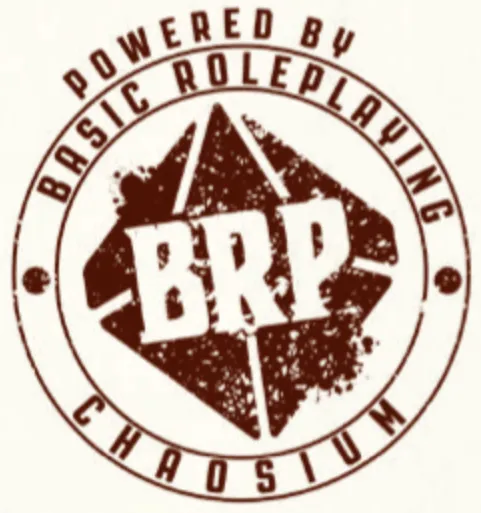
Role in the Party: Archaeologists serve as invaluable sources of historical information and often take on the role of puzzle solvers and trap disablers. They excel at deciphering ancient texts, revealing the history of cursed relics, and offering valuable insights into the civilizations of the past. Their knowledge can guide the party in understanding the significance of their findings and making informed decisions during archaeological expeditions. On top of that they can provide an abundance of useful tools.
- Affinity: Earth
- Primary Characteristics: Initiative, Intelligence
- Earning Skill: Lore (History)
- Equipment: Hammer, Chisel, Brush, Shovel, Pickaxe, Chalk, Field Journal, Writing Tools, Bedroll, Waterskin
Skills
- Climb, Evaluate, Intuition, Language (select), Lore (Anthropology), Lore (Geography), Lore (History), Melee (Brawling), Navigation, Outdoor Survival, Perception, Research, Track, Trade (Archaeology)
Building the Backstory
These questions don't have to get answered and written down in detail, they are just there to make your think about your hero, but the answers can help the gamemaster to set up connections and stories related to your character.- What led you to pursue archaeology as a profession, and what was your most significant early discovery or excavation?
- Describe a dangerous encounter or artifact you encountered during one of your archaeological expeditions. How did you handle it?
- Do you have a particular historical era or civilization that fascinates you most? What drives your passion for uncovering the past?
- Have you ever had to navigate the ethics of artifact collection and preservation? How do you balance the thrill of discovery with the responsibility of preserving history?
- What is the ultimate mystery or artifact you hope to uncover in your archaeological career, and what drives your relentless pursuit of it?
Progression
Legend: Companion Gadget Mutation Potion Scroll Spell Talent
✠ Novice
During the course of their job, archaeologists make extensive use of various devices that assist them. In the beginning, a Novice will have the backpack plus another one other item of their choice in their possession. They can acquire more as they progress. If the Archaeologist is also an Engineer, they can try to build the items themselves, which would give them a bonus (+2 SL) in case they need to repair them.Archaeologists have extensive knowledge of historical events and can recall crucial details about civilizations and their achievements: +2 SL (Success Levels) when trying to recall details of common historic events, places, and people. Clandren's Cogwheel Compass
A brass compass with intricate cogwheel mechanisms for precise orientation and navigation in complex underground tunnels or mazes. Special effect: with the press of a button you can lock the compass to it's current location, so you can always find this place again until you lock the compass to a different location or release it to normal mode.
An evergowing lantern that emits a soft, warm light, useful for illuminating dark crypts and deciphering ancient texts. It possesses shutters on all four sides to shut it down. Side effect: it also colors all objects (even the air), depending on their temperature. The warmer, the brighter red they glow. Radius: 30 ft.
♟ Adept
Archaeologists gain proficiency in multiple ancient languages, allowing them to read inscriptions and decipher cryptic texts: +2 Success Levels when trying to read ancient inscriptions. Alitov's Automated Scribing Quill
A self-writing quill that transcribes notes and sketches while the archaeologist explores, ensuring that no observations are missed. Telepathic Communicator
A small magical crystal that allows communication with fellow archaeologists over long distances, useful for team coordination.
A device that detects traces of magical energy left behind on ancient relics or sites, aiding in the identification of enchanted artifacts. Usage: place it in the center of a room and activate it. For 1 minute, it will illuminate all magical items in a blue light, if there were magical items that got removed (lately), there might be a slight trace of its shape visible. Recharge time: 24 hours.
♜ Master
Archaeologists have a keen eye for identifying valuable artifacts, allowing them to discern genuine items from replicas or fakes: +2 Success Levels when trying to identify a replica. Martok's Mystic Goggles
Goggles with crystal lenses that allow the wearer to see some hidden inscriptions, symbols, or magical wards on artifacts. Etheric Ward Disruptor
A handheld device that temporarily neutralizes some magical wards and barriers, allowing access to sealed areas.
An ornate pocket watch with intricate cogwheel designs that helps keep track of time during digs and explorations. Bonus feature: with the press of a button the gadget rewinds time 10 seconds into the past, for everything in a radius of 3 foot around it. Can only be used once in three days (recharge time).
♛ Legend
A magically enhanced steampunk projector that creates 3D holographic maps of excavation sites, aiding in planning and analysis.
A clockwork bird that can fly over excavation sites, equipped with a seat large enough for a small person, to survey landscapes. Paranormal Detector
A gadget equipped with sensors to detect paranormal or ghostly activity often associated with ancient burial sites.
Operations
Archaeologists affiliated with a historical organization often receive varying degrees of support for their expeditions, contingent upon the scale of the endeavor. Certain resources may be included in the monthly membership fee, while others can be acquired or rented for a nominal charge. Alternatively, additional assistance may be provided in exchange for a percentage of any recovered treasures or if the company holds a vested interest in the venture's success.Equipment
- Excavation Tools: Shovels, brushes, trowels, and picks are essential for uncovering buried relics and carefully excavating fragile items.
- Field Journals: Archaeologists keep meticulous records of their discoveries, including sketches, notes, and maps, to document their findings. Field Journals come packs of five, combined with ink and writing tools.
- Artifact Preservation Kits: This kit contains materials for cleaning, repairing, and protecting ancient artifacts.
- Travel Gear: Tents, backpacks, and camping supplies are essential for extended expeditions into remote regions.
- Reference Books: Comprehensive reference books on history, archaeology, and anthropology provide valuable insights during research.
- Laboratory Equipment: Portable tools for analysis and examination of artifacts, including magnifying glasses, scales, and alchemical kits.
- Protective Gear: Safety goggles, gloves, and masks to protect against dust, debris, heat, cold, and hazardous materials.
- Surveying Instruments: Compasses, measuring tapes, and surveying equipment for mapping and recording excavation sites with precision.
- Transportation: Horses, carriages, or camels for transporting equipment and supplies to remote excavation sites.
- Food and Provisions: Rations, cooking utensils, and portable stoves for sustaining the team during fieldwork.
- First Aid Kits: Medical supplies and emergency equipment for treating injuries or illnesses while in the field.
- Weather Protection: Umbrellas, raincoats, and sun hats to shield against inclement weather conditions during outdoor work.
- Language and Cultural Guides: Books or translators for communicating with locals and understanding the cultural context of archaeological sites.
Personnel
- Travel Guides: Experienced locals or hired guides who provide navigation assistance, knowledge of the terrain, and insights into local customs and culture.
- Porters: Strong individuals hired to carry equipment, supplies, and artifacts to and from excavation sites, ensuring efficient transportation.
- Cooks and Camp Staff: Personnel responsible for preparing meals, setting up camp, and maintaining cleanliness and orderliness at the expedition's base camp.
- Interpreters: Bilingual or multilingual individuals who facilitate communication between archaeologists and local inhabitants, aiding in interviews, negotiations, and interactions.
- Security Personnel: Guards or escorts hired to protect the team and their valuable equipment and artifacts from theft, vandalism, or hostile encounters.
- Laborers: Workers hired for manual labor tasks such as digging, clearing debris, or constructing temporary structures at excavation sites.
- Liaison Officers: Representatives who establish and maintain relationships with local authorities, landowners, and community members, ensuring cooperation and compliance with regulations.
- Merchants and Traders: Suppliers of goods and services such as food, equipment, and transportation, who may negotiate prices and arrangements with the archaeological company.













I love your page set up and the use of containers and such. I wish I could figure out how to do those... that's my goal for next year is to get my layout "cleaned up"!